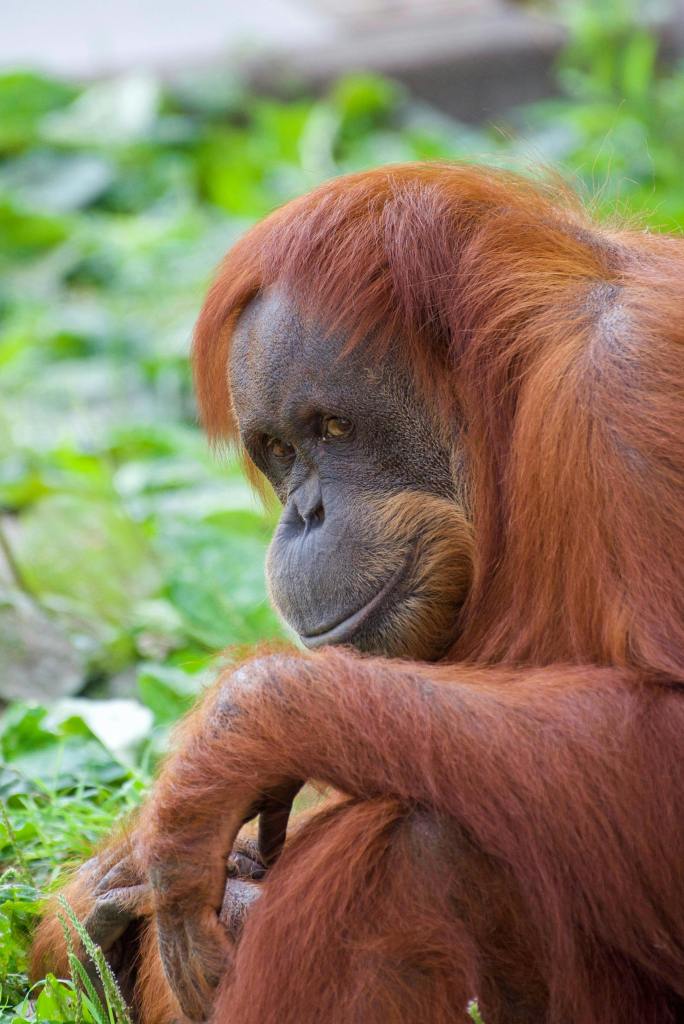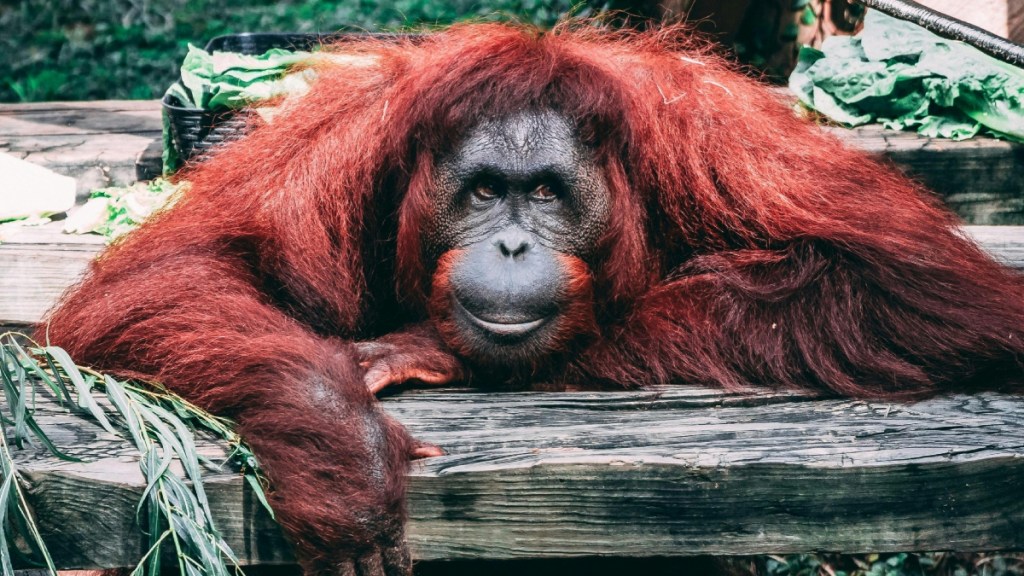A research group in Indonesia has spent the last 21 year observing all sorts of wildlife. Still, after all this time, they recently witnessed a first. And they have Rakus, a flanged male orangutan, to thank for it. After getting a particularly nasty gash on his cheek, the clever orangutan treats his wound with a medicinal plant. The findings, which have since been published, are proving to be both exciting and beneficial!
The researchers have been observing Rakus, along with others, as they go about their lives in the Gunung Leuser National Park in South Aceh. Rakus first moved into the area in 2009. At the time, he wasn’t fully matured yet. Once he did grow up, it seems that he and some of the other flanged males wanted to establish dominance.
In turn, this is possibly how Rakus got an open wound on his face. While this sort of behavior is expected, the way the injured orangutan treats himself is not. The stems and leaves he utilized are called kuning. By humans, they’re used to treat diabetes, dysentery, and malaria. But orangutans are not known to consume the plant.
Orangutan Surprises Scientists With the Way He Treats His Own Wound
It’s no wonder, then, that Rakus caught the attention of researchers. Not only did he chew the leaves without swallowing, he also used his fingers to smear the leaf juices on his facial wounds – and he did so for over seven minutes. The result? A completely healed wound in eight days.
“It shows that orangutans and humans share knowledge,” Caroline Schuppli, co-author of the study says. “Since they live in the same habitat, I would say that’s quite obvious, but still intriguing to realize.”

It’s possible that this behavior hasn’t been seen in the orangutans before because injuries are so rare. It’s also possible, they say, for Rakus to have picked up this behavior before he moved to this area. Either way, it’s a reminder that our animal friends are much smarter than we give them credit for.
Plus, Michael Huffman, who studies animal self-medication at the Institute for Tropical Medicine, notes that it’s likely humans have likely taken a few notes from animal behavior over the years, not just the other way around.
“Probably our ancestors were looking at other animals and learning about medicines,” he says, adding that when social animals communicate, “that information sticks and can last over generations.”
You can find the source of this story’s featured image here!
Want to be happier in just 5 minutes a day? Sign up for Morning Smile and join over 455,000+ people who start each day with good news.



